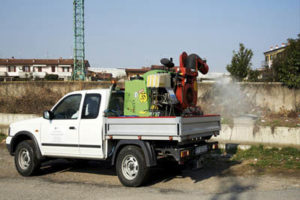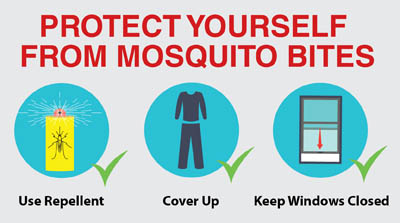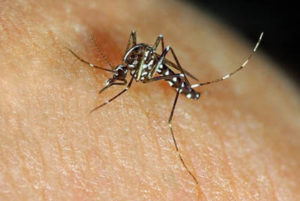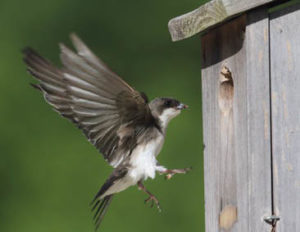 Introduction
Introduction
Although it is not believed to have been endemic (transmitted by local mosquitoes) in Maryland, as of 2015-2016 the Zika virus has become a new and potentially serious source of concern for young families. Why? Maryland mothers infected while traveling could give birth to babies with the tragic microcephaly syndrome (smaller heads and smaller brains). In less severe cases brain-damaged babies could suffer from various developmental neurological problems. Recently the US Center for Disease Control (CDC) reported that, “Five percent of pregnant women with a confirmed Zika infection in the U.S. went on to have a baby with a related birth defect.” (Louis, C.S., NYT, 6-9-17). Earlier CDC announced that: “American mothers infected with Zika were 20 times more likely to give birth to babies with birth defects as mothers who gave birth before the [Zika] epidemic.” (McNeil, D.G., “Defects Rise Twentyfold For Mothers With Zika” NYT, 3-3-17). Zika infection during any trimester of pregnancy “can lead to severe birth defects.” (Sun, L., Wash Post, 6-9-17).
Zika virus usually does not produce a serious infection in most people. Uncomplicated Zika virus causes a mild illness, not a clinically serious infection (except for the rare adult case of Guillain-Barre syndrome) or it may have no symptoms at all (Boseley, S., Guardian, 2-5-16).
Zika appears able to be transmitted by two Aedes-type mosquito species Aedes aegypti and Aedes albopictus. The latter mosquito A. albopictus is more commonly found in Maryland than is A. aegypti.
NOTE: The Zika virus can also be transmitted sexually by way of semen. Pope Francis has indicated that women exposed to the Zika virus may be permitted to use contraception to avoid pregnancy, in a departure from Catholic teaching. (Sherwood, H., The Guardian Weekly, 2-26-16). There are recommended time periods for postponing pregnancy available from physicians for both men and women of child-bearing age who are infected with Zika virus.
As of late spring 2017 in Maryland, Zika does not appear to be endemic (transmitted by local mosquitoes). People diagnosed with Zika in Maryland up to this time are reported to have acquired the infection from an out of state mosquito or from a non-mosquito source.
With Maryland’s peak mosquito season here, (late July thru August) health agencies need to make every effort to reduce or prevent local mosquitoes from becoming infected with the Zika virus and to advise residents traveling to areas where the virus is endemic about the best ways of preventing exposure to Zika-infected mosquitoes. Below we provide general recommendations. For further details and updates please consult Centers for Disease Control and Prevention (CDC).
Chemical Type Mosquito Controls
According to knowledgeable individuals the broad-spectrum chemical insecticide sprays from trucks used against adult mosquitoes are of questionable effectiveness.
 Michael Doyle (former head of mosquito control in the Florida Keys) has observed that: The traditional technique of mosquito control by spraying from trucks and planes “is like fighting Al Queda with an old fashioned army” (Tavernise, S., NYT 2-13-16). Another observer has questioned the efficacy of blanketing neighborhoods with pesticides. Relying on “trucks that sprayed pesticides… often did not work…” (McNeil, D., “Lessons from the Battlefront,” NYT, January 17, 2017).
Michael Doyle (former head of mosquito control in the Florida Keys) has observed that: The traditional technique of mosquito control by spraying from trucks and planes “is like fighting Al Queda with an old fashioned army” (Tavernise, S., NYT 2-13-16). Another observer has questioned the efficacy of blanketing neighborhoods with pesticides. Relying on “trucks that sprayed pesticides… often did not work…” (McNeil, D., “Lessons from the Battlefront,” NYT, January 17, 2017).
Further, using broad spectrum chemical insecticides by truck application to spray neighborhoods can be hazardous to people and the environment.
Barrier sprays from a backpack applied to foliage and shrubs around a residential property may be effective at reducing or eliminating mosquitoes from that individual property. A barrier spray formulation with the chemical pyrethroid active ingredient, lambda cyhalothrin is registered as effective not only against mosquitoes but also against bees, spiders, and flies. Therefore, lambda cyhalothrin, used as a barrier spray could potentially eliminate these beneficial insects: Bees, Butterflies, Lacewings, Dragonflies, Ladybugs, Hover Flies, etc. Beneficials serve as pollinators, food for birds and they help to control pest insects. The possible adverse effects of such treatments need to be considered by home owners, since at this time state health professionals have not reported that Zika infected mosquitoes are endemic (reproducing) in Maryland and since alternative less harmful mosquito control methods such as low risk IPM are available.
Low Risk IPM (Integrated Pest Management) Mosquito Control
An adequately funded, well supported public health centered program should provide low risk, non-chemical control methods accompanied by education. Such an IPM-type program can effectively reduce mosquito populations that could potentially carry Zika virus, without putting beneficial insects at risk.
Aedes-type mosquito populations can be controlled by a rigorous program of public education that explains how to prevent mosquitoes from breeding in standing water, encourages use of personal repellants by individuals (Quarles, W., “Zika virus and microcephaly,” IPM Practitioner, Feb 2016) and may also opt for the use of mosquito traps. (See “Actions We All Can Take” under “Recommendations” below).
Education:
For Maryland residents who anticipate traveling to Zika-endemic areas
Both men and women need to be aware of their chances of becoming infected while visiting a Zika-endemic area. (check with “cdc zika” for details.) If such travel is unavoidable they need to know how to evade mosquito encounters. Those at the age when they might be planning a pregnancy need to know about the time frames for postponing pregnancy if such travel takes place and/or if they test positive for Zika virus.
For Zika Infected Marylanders Returning to the State
Zika Infected residents need to know about and use personal protection from mosquitoes through protective clothing and repellants. They need to know about and employ the various alternative ways to prevent mosquitoes from breeding on their own residential properties and about ways to identify (and even reduce) mosquito populations through trapping.
 Non-contact with mosquitoes can be accomplished by wearing long-sleeved shirts, long pants, and by using repellants on exposed skin when going outdoors, and also by staying indoors as much as possible, with doors and windows closed and air conditioning running.
Non-contact with mosquitoes can be accomplished by wearing long-sleeved shirts, long pants, and by using repellants on exposed skin when going outdoors, and also by staying indoors as much as possible, with doors and windows closed and air conditioning running.
Information needs to be reaching the public so that an individual cannot claim ignorance about Zika-endemic areas and ways of preventing becoming infected when visiting such areas. Further, for a Zika infected resident failure to avoid contact with mosquitoes in Maryland on returning to the state could present a public health problem for the whole community. The state public health agency can enlist the help of clubs, faith based communities and schools to assist in getting this message across to the public.
Important information about Zika
An effective treatment for individuals with Zika virus infections may not be available at this time. There are tests for Zika virus and there are estimates for how long an infected person remains contagious (able to pass Zika to a mosquito that is feeding on them). There are recommended time periods for postponing pregnancy available for both men and women of child-bearing age who are infected with Zika virus. Much of this information can be obtained from medical professionals.
For All Maryland Residents
For the general public there needs to be door-to-door campaigns, as well as public service announcements about the mosquito-based and the semen-based transmission of Zika. Both men and women need to be aware of their chances of becoming infected through travel to Zika endemic areas. Both need to know about the time frames for postponing pregnancy if such travel takes place and/ or if they show a positive test for Zika. Everyone needs to know about personal protection from mosquitoes through use of repellants, about the various alternative ways to prevent mosquitoes from breeding on residential properties and about ways to identify (and even reduce) mosquito populations through trapping.
More on IPM
Residents need to be educated about where Aedes-type mosquitoes breed. These mosquitoes can use the amount of water in a bottle cap for depositing eggs. The eggs can develop inside the ends of downspouts especially the ones that are corrugated, thus facilitating water collecting in the low areas. Bird baths need to be changed at least every other day and kept free of debris. Discarded plastic containers, pet bowls, folds in tarps can all serve to host developing mosquito larvae if they collect water.
- Professor Steve Lindsay of Durham U. (U. K.) is concerned that people may be unaware of Aedes-type mosquito breeding sites close to home (in our own yards): “There is so much misinformation out there. You see pictures of large open areas of stagnant water. But that’s not where the danger is. [The Aedes-type] breeds in small containers, flower pots, gutters, tyres, water bottles. It’s about…educating and empowering communities…”
- Lindsay notes: “…growth in the population of [Aedes-type mosquitoes] is [due] to our rapid increase in plastic consumption; it provides the mosquito with an ideal breeding ground.”
- And further Lindsay claims: “We have tools available that we can use to defeat [Aedes] mosquito vector today.” (Bland, A., “Time to bite back against our deadliest enemy?” The Guardian Weekly, 2-26-16)
Neighborhoods could follow the lead of University Park (UP) in Maryland and adopt the Take Back Our Yards (TBOY) initiative. (see Community Mosquito Control UP, contact: mosquito.control.up@gmail.com)
Recommendations
In Maryland, Zika infections acquired by residents while traveling out of state have been reported since 2016. The Zika virus can be transmitted through the bite of an infected Aedes-type mosquitoe as well as by an infected man’s semen. Below are actions to help keep this virus from becoming established in our local Aedes-type mosquitoes and to help keep these mosquito populations at sufficiently low levels so that they are not a nuisance to residents. Reproduction of Aedes-type mosquitoes only requires small quantities of water. Removing discarded bottles, bottle caps, plastic containers and other debris from around our homes and neighborhoods is needed to help reduce numbers of these insects. Note: The actions below are designed to avoid harming beneficial insects as much as possible.
Actions we all can take:
 Reduce use of plastic bottles,
Reduce use of plastic bottles,- Pick up and dispose of discarded plastic containers,
- Become aware of and eliminate potential mosquito breeding sites outdoors by monitoring and emptying whatever is able to hold water such as trash, toys, tires, tarps and tools,
- Deny mosquitoes access to downspouts especially corrugated black tubing by covering the ends with panty hose or mosquito netting held in place with a rubber band-Check occasionally for clogs,
- Use natural mosquito controls: Bacteria (B.t.), Plants (Lantana), Bats, Dragonflies, Birds (swallows, swifts, purple martins), Fish (gambusia, goldfish, others),
-
Use repellant products available for personal protection (CDC recommends Deet, Picaridin, Oil of Lemon Eucalyptus among others),
- Choose clothing to protect skin from mosquito bites (long sleeves, long pants),
- Avoid routine use of toxic chemical insecticides.
Actions for Maryland residents who travel:
- Find out if your destination is endemic for Zika virus,
- If so avoid going there or postpone a visit until the end of mosquito season,
- If avoidance of mosquito season is not possible take precautions to evade mosquitoes, through clothing and use of repellants. Those of a child bearing age need to consult a physician about postponing pregnancy.
Actions for Maryland residents infected with Zika virus:
- Avoid transmitting the virus to local mosquitoes while in Maryland (for as long as you are contagious). Protect yourself from mosquitoes, with long sleeves, long pants and use of personal repellants,
- Reduce mosquito breeding sites in and around your residence,
- Zika-infected men need to avoid transmitting the virus to their partners,
- People of a child-bearing age need to consult with a physician about postponing pregnancy.
Actions for Maryland Public Health Officials:
- Make information widely available to residents about Zika virus transmission by infected Aedes-type mosquitoes as well as by semen from a Zika infected male,
- Make available to both male and female residents current information on areas where Zika is endemic, length of time that a Zika infected person can be contagious, recommendations for length of time to postpone pregnancy for Zika infected males and females,
- Provide low risk, non-chemical recommendations to the public for mosquito control,
- Encourage communities to adopt the “Take Back Our Yards” initiative,
- Enlist the help of clubs, faith based communities, schools, etc to get the message about mosquito control and Zika virus to citizens of Maryland.
The Centers for Disease Control and Prevention (CDC) provides information on the Zika virus in the U.S. and beyond. (see “cdc zika“).
By Diana Post & Munro Meyersburg. July 20, 2017





